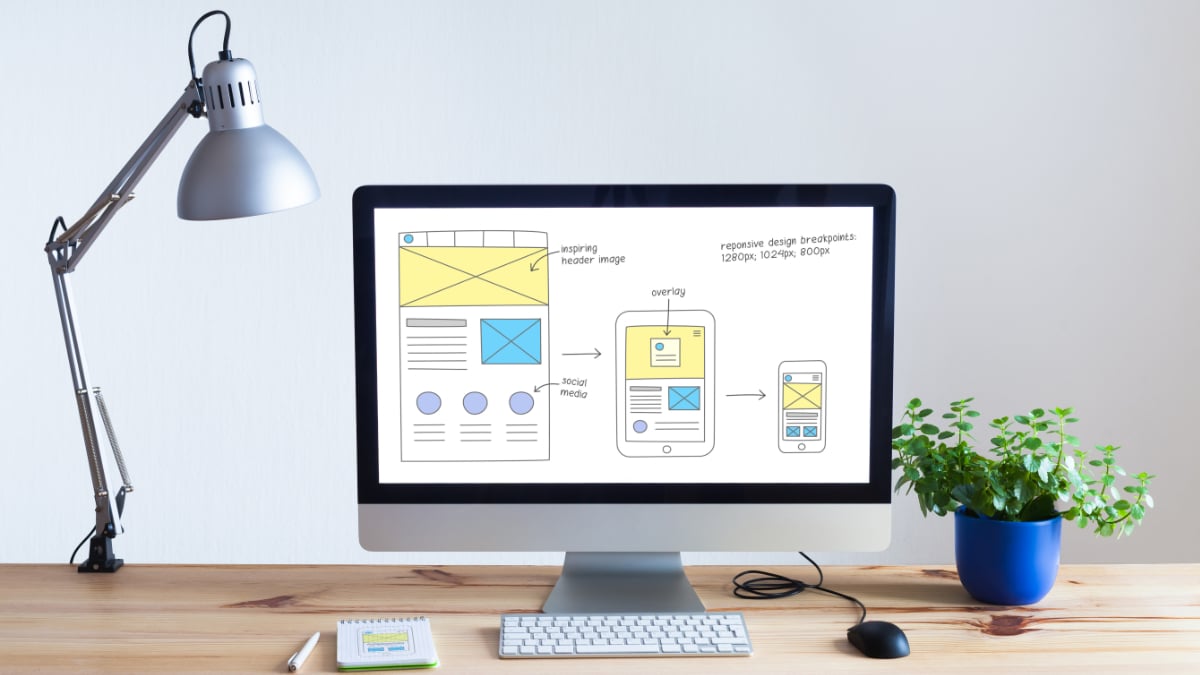Everything you should know about a good website design
Your website is often the first impression potential customers have of your business, making website design a critical aspect of your online presence. A well-designed website not only looks professional and trustworthy, but also provides a positive user experience that keeps visitors engaged and coming back. Here are some of the key benefits of good website design:
Improves user experience: Good website design makes it easy for visitors to find what they’re looking for and navigate your site. A clean and organized layout, clear call-to-actions, and intuitive navigation can all contribute to a positive user experience.
Increases conversions: A well-designed website can also improve your conversion rate by making it easy for visitors to take the action you want them to take, such as making a purchase or filling out a form. A clear and simple design can help visitors focus on your call-to-actions, leading to more conversions.
Builds trust: A professional and polished website design can build trust with potential customers and make them more likely to do business with you. A cluttered, outdated, or poorly designed website, on the other hand, can detract from your credibility and turn potential customers away.
Enhances brand image: Your website design should reflect your brand’s image and values. A consistent design that uses your brand’s colors, fonts, and imagery can help reinforce your brand and make it easier for visitors to recognize and remember your business.
Improves search engine optimization: Good website design can also improve your search engine optimization (SEO) by making it easier for search engines to understand and crawl your site. A clean and well-organized structure, optimized content, and clear headings can all help improve your website’s ranking in search results.
In conclusion, good website design is an investment in the success of your business. It not only provides a better user experience, but it can also improve your conversion rate, build trust, enhance your brand, and improve your search engine optimization. When designing or updating your website, consider these benefits and strive for a design that is both aesthetically pleasing and functional.
Additionally, effective website design encompasses various elements that go beyond aesthetics. It should prioritize responsive design, ensuring that your site functions seamlessly across different devices and screen sizes. Mobile-friendliness is crucial, as an increasing number of users access websites from smartphones and tablets. A responsive design not only enhances the user experience but also contributes to better search engine rankings.
Content plays a pivotal role in website design. High-quality, relevant, and regularly updated content is vital for engaging your audience and improving SEO. Utilizing multimedia elements like images, videos, and infographics can further enhance the appeal of your website. However, it’s essential to strike a balance between visuals and text to maintain a fast-loading site, as slow loading times can deter visitors.
Security is another critical aspect. Ensuring the safety of user data and protecting against cyber threats is a priority. Implementing SSL certificates and robust security measures can build trust with users who are increasingly concerned about their online privacy.
Furthermore, consider the importance of accessibility. A well-designed website should be inclusive, and accommodating to users with disabilities. This not only expands your potential audience but also demonstrates your commitment to diversity and inclusivity.
In the ever-evolving digital landscape, staying up-to-date with design trends and technological advancements is essential. Regularly reviewing and optimizing your website ensures it remains competitive and aligned with the changing expectations of your audience.
Remember that website design is an ongoing process, not a one-time project. Analyzing user behavior through tools like Google Analytics can provide valuable insights to refine your design continuously. A well-maintained website not only attracts new visitors but also retains existing ones, fostering long-term customer relationships and ultimately contributing to the success of your business.
In conclusion, a well-rounded website design is not just visually appealing but also functional, secure, accessible, and adaptable. It forms a fundamental pillar of your online presence, influencing user experience, trustworthiness, and business success. Therefore, investing in a comprehensive website design strategy is a prudent choice for any forward-thinking organization.


